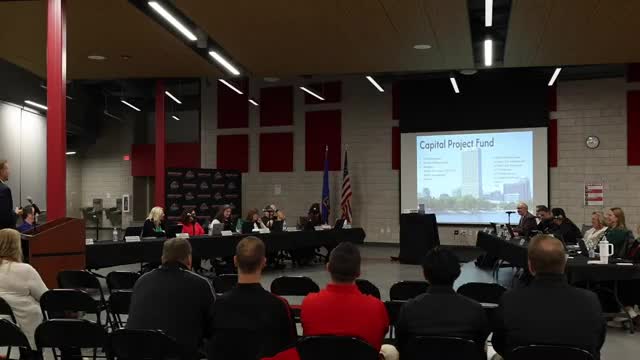Facilities director briefs Muskego-Norway board on capital needs, solar grant and rising costs
Get AI-powered insights, summaries, and transcripts
Subscribe
Summary
Director of buildings & grounds reported the district spends about $750,000 annually on capital projects, highlighted recent stadium and track work, announced an 84-panel solar grant for the high school, and warned of rising vendor and energy costs.
Mr. Johnson, the district’s buildings and grounds director, told the board on Nov. 10 that the district typically spends about $750,000 annually on capital projects — up from about $400,000 over the past decade — and detailed priorities for roofs, parking, athletic facilities and equipment replacement.
He said the district manages a dedicated parking-lot fund (about $60,000) and a savings account called Fund 46 for large one-time projects such as field-turf replacement. Johnson described recently completed work including a new batting cage for softball, a full track resurfacing that should have a roughly 20-year life, and roof sections replaced over the summer. He noted some roofs date to 1999 and additions from 2002–03 will need progressive attention.
Johnson also briefed the board on smaller repairs and near-term choices: stair-tread replacements at Bay Lane, patch-and-paint fixes for tennis courts (estimated at roughly $4,800 vs. full replacement) and deferred gym re-sanding. He reported nearly 2,800 work orders last year with an average response time of 2.9 days and said the district’s new facility rental platform increased rental revenue from about $101,000 to nearly $240,000 in recent years.
The director announced the district had been awarded a solar grant for 84 panels for the high school; he said the district must purchase matching panels and study the return on investment and installation costs before proceeding.
Johnson warned of inflationary pressures across vendors and utilities: what had been roughly $750,000 in recurring facility services has moved toward $1,000,000 and some energy rate adjustments from the utility (We Energies) have been nearly 10 percent in a year.
Board members thanked Johnson and his team for long-term planning and asked clarifying questions about rental fees and the tennis-court strategy. Many capital projects Johnson mentioned will be returned to the business services committee for approval as budgets and timing are finalized.
What happens next: Johnson said specific roof-sections and larger projects will be brought back to business services for approval when budget positions are confirmed and the board will evaluate the solar grant after an ROI and funding plan are prepared.
